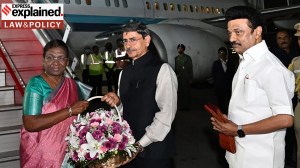Have to take parties on board before hiking diesel prices: FM
Decision on freeing diesel,fertiliser prices urgent: Pranab
Even though the Union Budget 2012-13 has alluded to the possibility of freeing prices of diesel and fertiliser,the UPA is yet to build consensus amongst its allies on these contentious issues.
The Budget has to be passed by Parliament and I cannot make a proposal that is not acceptable to others. We will have to take political parties on board for proposals in the oil sector, finance minister Pranab Mukherjee said at an interaction with reporters on Sunday.
The Budget seeks to cap subsidies below 2 per cent of the GDP in 2012-13 and lower it to 1.75 per cent of the GDP over the next three years. Subsidies stood at 2.4 per cent of the GDP in 2011-12 as per the revised estimates. In an indication that there would be some policy action on deregulating prices of diesel and fertiliser,Prime Minister Manmohan Singh had earlier said that the government would have to bite the bullet on subsidies.
But Mukherjee admitted,The political ground reality has to be recognised….We will have to get a broad consensus on this,however difficult,however time consuming it may be.
With opposition from key allies,the UPA has refrained from increasing prices of diesel,kerosene and cooking gas and fertiliser despite global crude oil prices witnessing a sharp rise. Petrol prices were de-regulated in 2010,when the government also took an in principle decision to free diesel prices. But it has not taken a concrete step towards this end.
High subsidies are inflating the countrys fiscal deficit,which is likely to ballon to 5.9 per cent of the GDP this fiscal and 5.1 per cent in 2012-13. For the next fiscal,the government has made a provision of Rs 40,000 crore towards fuel subsidy,and another Rs 60,974 crore.
However,concerned by the impact of the high subsidy on the Centres finances,Mukherjee said that the government can only afford to foot its bill until the time it has a capacity to do so. If oil prices touch $1,000 a barrel,would the country be able to pay? As long as you have the capacity,you defer taking hard decision, Mukherjee said,adding that the government cannot afford to go back to a situation like 1990 when the country had to pledge its gold with the Bank of England to pay for crude oil.
Interest rate
The government is expecting lower interest rates in the coming months as it looks at policy reversal by the RBI in the wake of moderation in inflation. The fact that core inflation has moderated in the past three months and that in coming months we are looking at reversal in the policy rates should help in improving sentiments, Mukherjee said,adding,Inflationary pressures need to be at a moderate level in the next financial year. I am not talking about a 3-4% inflation level; 6 to 6.5% will be an acceptable level.
DTC deadline
The Finance Minister also expressed hope that the direct tax regime would become effective from 2013-14. Responding to a query in a post-budget interaction with industry leaders,he said the DTC legislation would be in place in 2012-13,but effect would be from the next year onwards. On the changes suggested by the panel in the DTC,Mukherjee said two recommendations,General Anti Avoidance Rule and Advance Pricing Agreement,have already been proposed in the Budget 2012.
Mega projects
Seeking to assuage concerns over inordinate delays in giving clearance to real estate projects,the Finance Minister said,”We are trying to reduce the time lag so that the projects could be cleared as expeditiously as possible.” Mukherjee said. The government has formed a committee of group of ministers regarding clearances,especially the environmental approvals,to address this issue,Mukherjee said.
The crazy love for gold
Mukherjee today told bullion dealers,who have gone on strike against the levies on gold,that their pressure tactics will simply not not work. He explained that in two consecutive years about $90 billion of precious forex was used in importing gold making it the second biggest item of import after oil. The Minister pointed out that people in India were crazy for gold. He also rejected the argument of bullion dealers that the levies would encourage smuggling.
Photos


- 01
- 02
- 03
- 04
- 05





























